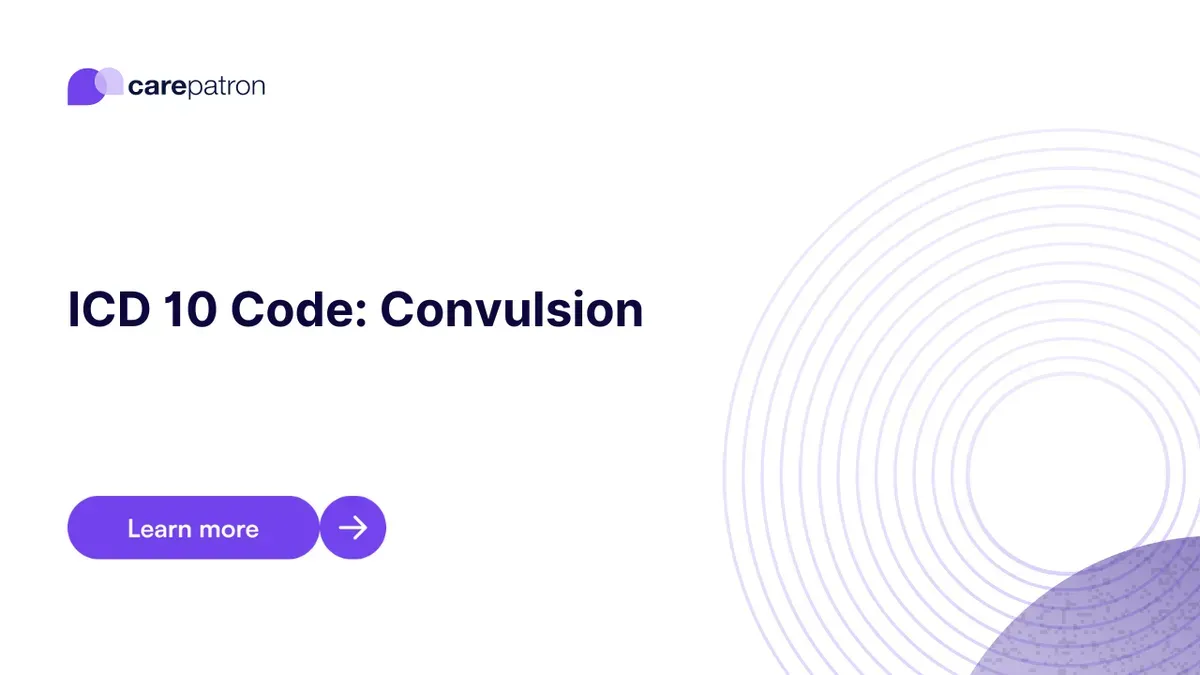
Convulsion ICD-10-CM Codes
Explore the detailed guide on Convulsion ICD codes for 2023. Grasp the codes, their billability, and their clinical implications.
Use Code
Commonly asked questions
Stay calm and ensure the person's safety by moving nearby objects away, placing them on their side, and not putting anything in their mouth. Once the convulsion stops, keep them on their side and seek medical attention.
Yes, the terms "convulsions" and "seizures" are often used interchangeably. Both refer to sudden, uncontrolled electrical disturbances in the brain that can cause changes in behavior, movement, and consciousness.
Yes, in some individuals, especially those with epilepsy, factors like stress, lack of sleep, or even specific triggers like flashing lights can precipitate a convulsive episode.
EHR and practice management software
Get started for free
*No credit card required
Free
$0/usd
Unlimited clients
Telehealth
1GB of storage
Client portal text
Automated billing and online payments
